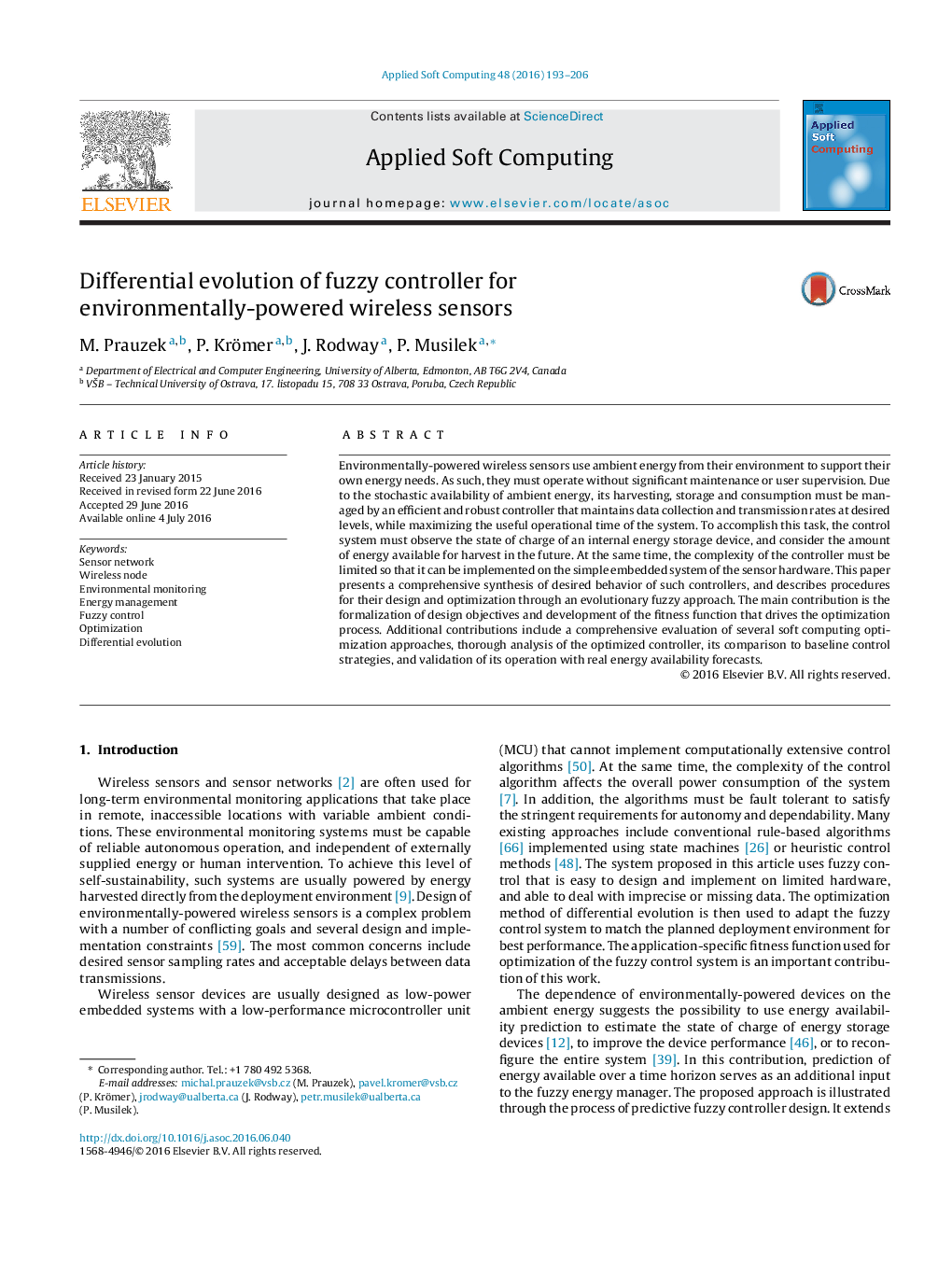| کد مقاله | کد نشریه | سال انتشار | مقاله انگلیسی | نسخه تمام متن |
|---|---|---|---|---|
| 494544 | 862799 | 2016 | 14 صفحه PDF | دانلود رایگان |
• Fuzzy control is used to manage energy consumption in wireless sensor device.
• Control is based on energy available in storage and from the environment.
• Differential evolution tailors system parameters for intended deployment site.
• Validity of the proposed approach is confirmed using real weather forecast data.
• Comparison with other common optimization approaches is provided.
Environmentally-powered wireless sensors use ambient energy from their environment to support their own energy needs. As such, they must operate without significant maintenance or user supervision. Due to the stochastic availability of ambient energy, its harvesting, storage and consumption must be managed by an efficient and robust controller that maintains data collection and transmission rates at desired levels, while maximizing the useful operational time of the system. To accomplish this task, the control system must observe the state of charge of an internal energy storage device, and consider the amount of energy available for harvest in the future. At the same time, the complexity of the controller must be limited so that it can be implemented on the simple embedded system of the sensor hardware. This paper presents a comprehensive synthesis of desired behavior of such controllers, and describes procedures for their design and optimization through an evolutionary fuzzy approach. The main contribution is the formalization of design objectives and development of the fitness function that drives the optimization process. Additional contributions include a comprehensive evaluation of several soft computing optimization approaches, thorough analysis of the optimized controller, its comparison to baseline control strategies, and validation of its operation with real energy availability forecasts.
Figure optionsDownload as PowerPoint slide
Journal: Applied Soft Computing - Volume 48, November 2016, Pages 193–206
